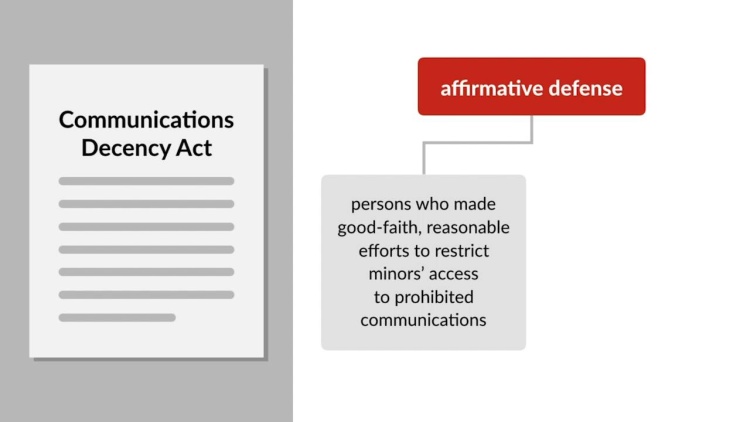Reno v. American Civil Liberties Union
United States Supreme Court
521 U.S. 844 (1997)
- Written by Megan Petersen, JD
Facts
The “indecent transmission” provision of the Communications Decency Act of 1996 (CDA) prohibited the knowing transmission of obscene or indecent messages via the internet to any recipient under the age of 18. The “patently offensive display” provision of the CDA prohibited the knowing sending or displaying of patently offensive messages in a manner that was available to a person under 18 years of age. The American Civil Liberties Union (plaintiff) brought suit in federal district court against Reno (defendant), attorney general of the United States, on the grounds that the CDA violated the First Amendment’s protection of freedom of speech. The district court found the CDA unconstitutional and enjoined its enforcement. Reno appealed directly to the United States Supreme Court.
Rule of Law
Issue
Holding and Reasoning (Stevens, J.)
What to do next…
Here's why 904,000 law students have relied on our case briefs:
- Written by law professors and practitioners, not other law students. 47,100 briefs, keyed to 995 casebooks. Top-notch customer support.
- The right amount of information, includes the facts, issues, rule of law, holding and reasoning, and any concurrences and dissents.
- Access in your classes, works on your mobile and tablet. Massive library of related video lessons and high quality multiple-choice questions.
- Easy to use, uniform format for every case brief. Written in plain English, not in legalese. Our briefs summarize and simplify; they don’t just repeat the court’s language.





